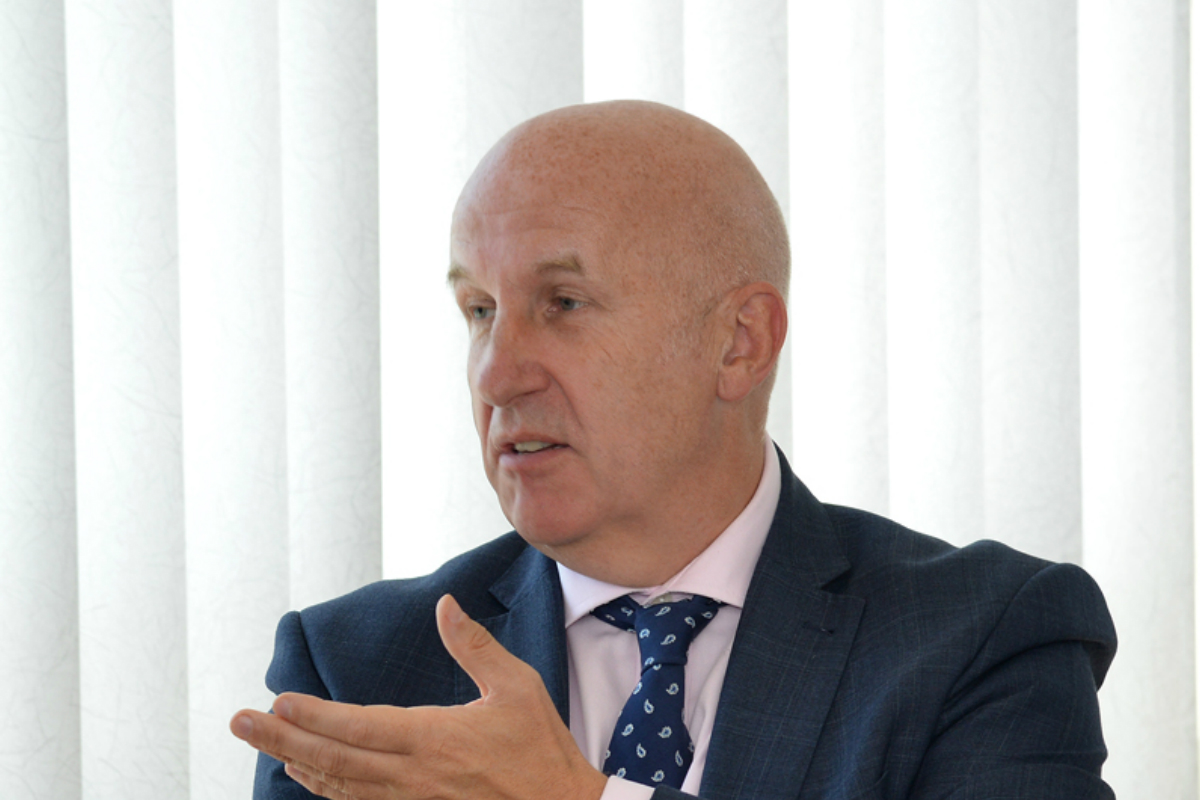Professor Ben Bridgewater – Reflecting on the Health Innovation Manchester story as we stand on the precipice of the next decade

Based on an article which appeared in “The Times” newspaper
As a learning organisation we are constantly reviewing our activities and performance as we strive to continuously improve. But working in such an incredibly fast-paced environment on the cutting edge of innovation rarely affords the opportunity for reflection in the wider sense of the word.
However, moving into the new financial year, considering content for the 2018/2019 annual report and looking towards the future has encouraged me to look back from a more holistic perspective. Not only in terms of how far Health Innovation Manchester has travelled in such a short space of time, but also how my career choices which may have not made much sense to my friends, family and colleagues at the time have fortuitously prepared me for the role of Chief executive of such an exceptional organisation.
It’s fair to say that I have had an unusual career compared to many in healthcare. During my 20 years as a cardiac surgeon in Greater Manchester I developed a particular interest in utilising innovation and new technology to improve patient outcomes and experience. This interest in turn evolved into a passion for innovation across the broader health and social care spectrum and became an itch than needed to be scratched, taking me out of the NHS and into a global technology company translating the digital transformation opportunities being realised so successfully in retail, banking and manufacturing into the health and life sciences. However, the opportunity back in Manchester to pursue my passion in an environment renowned for collaboration and empowered by devolution was one that I could not pass up and has brought me to where I am today, which incidentally is exactly where I want to be.
Health Innovation Manchester is a unique organisation that is different from all other existing structures in health and social care; conceived to ensure that the opportunities from devolution lead to greater innovation and economic development that helps transform the health and wellbeing of citizens. To some, the link between economic growth, innovation and population health and wellbeing may seem a little tenuous, but the reality is that these things are intrinsically related. If people are well, they are more productive and the economy does better, and if they are wealthier, they are less unwell in general.
The outcomes that can be realised at the intersection of health, wealth and innovation where Health Innovation Manchester operates are astounding, and I am delighted that the importance of investing in this space is appreciated by all our stakeholders. Despite being less than two years into the journey, Health Innovation Manchester has already gained serious traction at the heart of the city-region’s health and social care system, attracting additional resources from commissioners, industry, providers and the universities to boost our capacity and impact.
We now have an inflight project portfolio spanning more than 80 programmes many of which are particularly ambitious in range and scope such as a ground-breaking project to become the first city to eliminate Hepatitis C, and a multifaceted programme to improve the care of people with Chronic Obstructive Pulmonary Disease (COPD), the cause of 23,000 deaths in England every year and the fifth biggest killer in the UK. At the same time, we are recalibrating the NHS relationship with industry moving it from one of a traditional customer-supplier to one of collaboration and partnership. This is reverberating across the sector, not only attracting inward investment in specific programmes but wider investment in the city-region, highlighted by Amazon and QIAGEN’s recent moves to the city which have created hundreds of jobs.
Health Innovation Manchester is only at the beginning of a long-term plan rooted in bold ambitions. But having already delivered significant tangible outcomes in terms of improving health and wellbeing and generating economic growth in such a short space of time – there are no doubts that these ambitions are achievable.


